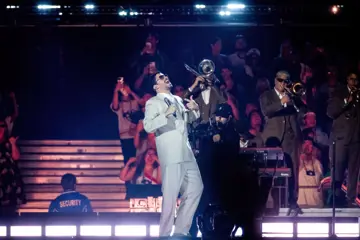Tim Hecker's work since 2001's classic Haunt Me, Haunt Me, Do It Again has been pivotal in informing modern ambient music, both technically and ideologically. His wonderfully intricate sound collages have been the starting point for many new artists, and Daniel Lopatin's Oneohtrix Point Never project is one of Hecker's most important contemporaries.
Their first collaboration, Instrumental Tourist (under Lopatin's own SSTUDIOS series), is something of a supergroup project in the right circles, and it delivers on its ambitious promise of transcendence; both their respective styles are cleverly subverted, and the many instruments they've gathered from around the globe are fully divorced from their original context and manipulated in completely different ways. The result is a strange and powerful hybrid that refuses to be dissected into its various elements, demanding to be engaged with as a whole.
The album was largely improvised and you can tell. Its jagged edges and weird transitions are obviously the result of ad hoc exploration. Both artists are relying on sonic intuition, and it's interesting listening to two minds with different ideas of what appeals to them aesthetically coming together to create something that feels like a single coherent dream.
Lopatin's use of fluid, haunting synth dynamics and Hecker's fearless use of texture come together in startling ways. It moves from high-vaulted ceilings in gothic electro churches with choirs of robotic angels filling the room, to the digestive system of some immense metal beast, wires and bolts and pistons grating together while coarse metallic blood flows around it.
Don't miss a beat with our FREE daily newsletter
It's a challenging record but a rewarding one. Beautiful, edgy and haunting, it's a bold statement in music's capability as an abstract artistic entity.















